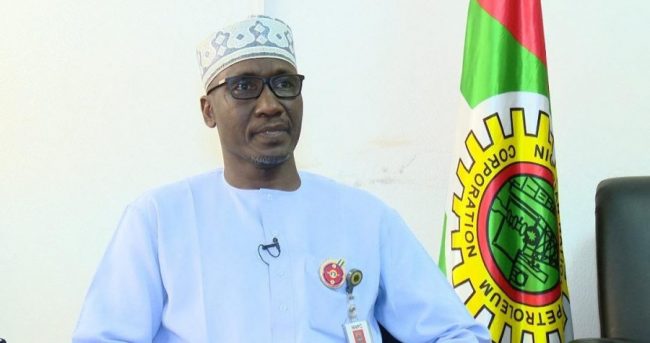The Nigerian National Petroleum Company Limited (NNPC), has disclosed its plan to partner with security agencies, and other stakeholders, in its fight against oil theft in the country.
Disclosing the NNPC’s plan, the corporation’s General Managing Director (GMD), Mele Kyari, who made this known, also stated that a platform is underway that would enable refiners and traders outside the shores of Nigeria to know if the petroleum products they secured from Nigeria are from genuine sources.
“We are also creating a platform where end-users, particularly refiners and traders, can validate if the crude they are handling from Nigeria is from genuine sources and whenever they have a non-validated product, they have an obligation to report to the necessary authorities in the world,” Kyari said as he cautioned refineries outside Nigeria that patronised dealers of stolen crude oil.
The NNPC chief insisted that it is commmon knowledge that the commodity was not refined in Nigeria due to the non-functional refineries across the country.
“If they don’t do this, then the culprits are international. That means they are part of the ring and whenever we discover this, we will take necessary actions against such culprits. And I’m sure our partners will cooperate with us to make sure that this is done.”
While maintaining that oil theft would not be able to succeed without international collaboration, Kyari explained that “it is impossible for any refinery to take crude oil that they don’t know its source. It is not possible.
“Refineries are designed to process a certain specific grade of crude. They know which crude they are processing. If it is from Nigeria, every refinery knows that it is from Nigeria.
“And it is their (refineries) duty to ensure that they validate this because we have a unique number for every cargo that leaves this country.”
Why NNPC is keen on nullifying oil theft
Between January and July 2022, Nigeria’s oil production took a nosedive by 28 million barrels, a development believed to have threatened the N9.37 trillion Federal Government’s oil and gas revenue estimated for the year.
